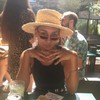Credit: greta6
I wouldn’t say Happy High Herbs was an institution – that’s probably pushing its importance far up into everyone’s memory– but the little yellow store that, somehow, sporadically appeared in every major town and city holds a special place in a generation’s coming-of-age story.For a teenager with no connects or fake I.D, it had an endearing pull. We were looking for whatever - and as quickly as possible. If the rumour mill was pointing to a non-descript, alternative herbal store… that’s where we would go. Essentially, Happy High Herbs was understood to be a business that sold legal highs, but also herbal remedies. There was, depending on who you spoke to, talk of synthetic drugs.But that store no longer exists, long-ago rebranded to “Happy Herbs”, with a new inventory and a different approach. You have to wonder why - and where - it went.Founded by avid herb activist Ray Thorpe, Happy High Herbs had humble beginnings as a market stall in the sleepy village of Uki in New South Wales. According to their mission page, through experimentation and research, Thorpe learned that natural herbs stood as an equally as powerful replacement to medicinal and recreational drugs. Soon, as the word spread, he opened 23 retail stores in Australia, and the USA.When I was 13-years-old, the first rumour I heard about Happy High Herbs was that the whimsical store sold extra special poppy seeds. Soaking them in hot water would make an opioid tea that, apparently, could get you extremely high. The second thing I heard (and acted upon) was that they sold Mugwort, a plant found in Europe and Asia said to act as an hallucinogen and sedative. When you’re 13 years-old, anything acts the way you want it to – it’s the placebo effect – so I really couldn’t tell you if it did something or not. It was even rumoured that our local store sold weed under the counter if you asked for it. These rumours caused a bit of trouble for the chain in 2010, when a number of festivals, including the annual hippy utopia, Woodford Folk Festival in Southern Queensland, began banning Happy High Herb stalls from their grounds. Foggy legal obligations meant that the insinuation of the word “high” was no longer appropriate for family-friendly festivities. A few years later, in 2013, a Sydney teenager threw himself over a balcony after ingesting synthetic LSD. But it wasn’t from Happy High Herbs - rather from some place in China through a back alley internet site. A number of news reports at the time used Happy High Herbs shop fronts as images to illustrate the story, and the store took legal action against them. But the damage was already done. That year, Thorpe admitted to the Sydney Morning Herald that they had a herbal smoking blend called ‘Green Puff’ that was “an extremely mild 5 per cent synthetic / 95 percent herbal smoking blend,” – nothing like the harmful products sold online or in some adult stores. There was also an instance where the store was accused of selling bath salts, which was having a moment in Australian media after various deaths around the country, including a 44-year-old truck driver who died hours after injecting it into his bloodstream. Thorpe quickly denied.Whether they actually sold anything that got you high is anyone’s guess. But the stories remain. One girl told me she once mixed her weed with a herb that gave her “the strangest high”. Someone else said they picked up some salvia from the nearest store when he was 14 years-old and had a really “intense” trip.Whether or not any of that’s true, Happy High Herbs took their ‘High’ away shortly following the bad press. They became Happy Herbs, and Green Puff was also excommunicated. The store became 100 percent herbal. The squares in the media had done their job.As the war on synthetic drugs commenced through the 2010s, made illegal across NSW in 2013, Happy High Herbs was sucked into the vortex. The cops were keeping a close eye on them and in 2015 a Gold Coast store was raided for synthetic weed.Though Happy High Herbs is gone as we know it, I can’t help but feel a little bit of sympathy for the man who just wanted to sell herbs. Really, apart from the synthetics, it just seemed like a store that was a little bit anti-establishment and a little-bit alternative, searching for healthy substitutes to mainstream medicine. Now, their website is pretty instructive and informative, adopting a Byron bay-esque aesthetic. Herbal tea blends, herbs for stress relief, and everything for optimising your immunity, there are pictures of people running on beaches and practising yoga in white linen. It’s far from the days of the little yellow store with a hand painted sign, dark and overcrowded and filled wall to wall with strange herbal mixtures.In the end, for those of us who remember it in a novel way, Happy High Herbs was a prime destination for desperate teenagers. And I really don’t think many people got high. It was a little bit of placebo and a whole lot of wishing.Follow Julie Fenwick on Twitter and Instagram.Read more from VICE Australia and subscribe to our weekly newsletter, This Week Online.
Advertisement
Advertisement
Advertisement
